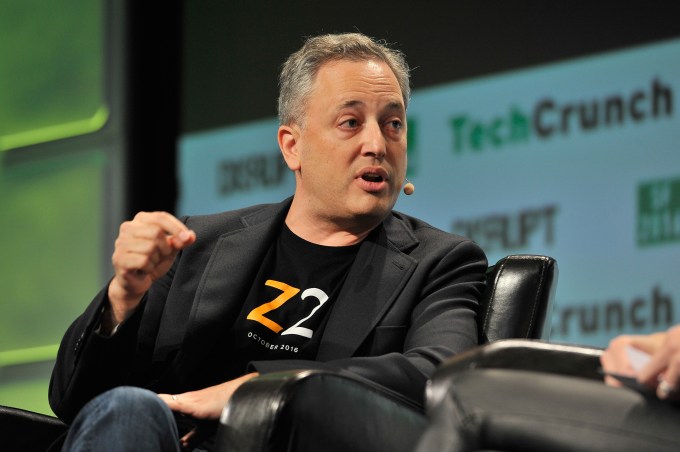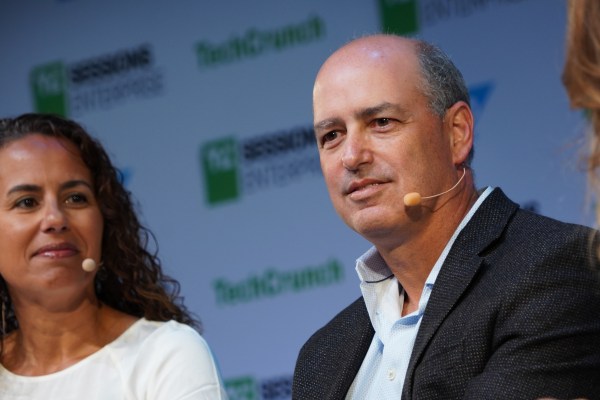Jason Green, co-founder and partner at Emergence, has made some solid enterprise SaaS bets over the years, long before it was fashionable to do so. He invested early in companies like Box, ServiceMax, Yammer, SteelBrick and SuccessFactors.
Just those companies alone would be a pretty good track record, but his firm also invested in Salesforce, Zoom, Veeva and Bill.com. One consistent thread runs through Emergence’s portfolio: They focus on the cloud and enterprise, a thesis that has paid off big time. What’s more, every one of those previously mentioned companies had a great founding team and successful exit via either IPO or acquisition.
I spoke with Green in June about his investment performance with enterprise SaaS to get a sense of the secret of his long-term success. We also asked a few of those portfolio company CEOs about what it has been like to work with him over time.
All in on SaaS
Green and his co-founders saw something when it came to the emerging enterprise SaaS market in the early 2000s that a lot of firms missed. Salesforce co-founder and CEO Marc Benioff told a story in 2018 about his early attempts at getting funding for his company — and how every single Silicon Valley firm he talked to turned him down.
Green’s partner, Gordon Ritter, eventually invested in Salesforce as one of the company’s earliest investments because the partners saw something in the SaaS approach, even before the term entered the industry lexicon.
“When we started the firm, we bet the farm right away on the cloud and enterprise and we thought this was a significant shift and opportunity but I don’t know that we could have ever envisioned a trillion dollars of market capitalization […] created in that period of time,” he said.
Green started his relationship with Box in 2011. CEO and co-founder Aaron Levie says that he was instrumental in helping the startup develop into a public company. “Jason is a human encyclopedia for enterprise software. He has shaped what modern SaaS is today and remains one of the deepest industry experts on all things growth, strategy, product and business models. He’s been incredibly helpful and influential as Box scaled from an early stage startup throughout our journey to becoming a publicly traded company,” Levie told TechCrunch.
Nurturing an emerging market

David Sacks, whose company Yammer was an early Emergence investment. Image Credits: Steve Jennings/Getty Images for TechCrunch
When Emergence began investing in these startups early on, Green had to work with the company founders in a fledgling market space and help them navigate all of that. One of those founders was David Sacks, who co-founded Yammer, an enterprise social startup that launched in 2008, and was acquired by Microsoft in June 2012 for $1.2 billion.
Sacks says that Green was his first SaaS investor, joking that “we didn’t even know what SaaS was at that stage.” Today Sacks is co-founder and general partner at his own VC firm, Craft Ventures. He said that when he and Adam Pisoni launched Yammer, their background had been in consumer tools, and they were trying to figure out a way to bring a consumer social approach to the enterprise — and Green was particularly helpful in that regard.
“Jason recognized the potential of this new wave [of enterprise software], and helped us bridge the divide. In particular, he helped us benchmark our performance relative to other SaaS products, understand enterprise sales and bring in the missing enterprise DNA,” Sacks said.
Success factors
Green credits much of his success to the founders he has worked with throughout his time at Emergence. “We brought on some amazing talent over the years and have seen them grow and mature into leaders. And seeing them kind of come into their own and make their impact on the industry is very rewarding,” Green said.
Stacey Epstein, who has worked with Green in a number of executive roles at several companies including SuccessFactors, ServiceMax and Zinc, says that Green understands business and strategy as well as anyone in venture capital, but she says what separates him from a lot of VCs is recognizing and understanding that it takes talent to run a successful company.
“Rarely did we have a discussion, either 1:1 or in a board setting, that he didn’t factor in the people behind the strategy. Aptitude, motivation and team dynamics throughout the organization are all a huge part of the equation for Jason, and it carried into how he interacted with me,” she said.
Crisis, what crisis?
While it would be easy to rest on past successes, especially during a pandemic and corresponding economic downturn, Green continues to move forward. In fact, he sees his experience living through a few past recessions giving him a leg up in terms of helping his portfolio companies navigate these times.
“I have had the benefit of living through a few of these already so just having the confidence to know that we’ll get through this and see the other side. Life will be different but we will persevere and thrive and having that conviction, that kind of base foundational conviction that things will be okay,” he said.
He says in some ways an economic crisis really forces startups to focus and clarify their mission. “I think some lessons learned from the prior crises is to not stick your head in the sand, but recognize that the world has changed and make necessary decisions to either raise money or cut costs or get really clear on your focus and value proposition and serve customers in a way that you never served them before,” Green explained.
Plenty of room to grow
While Green was able to capitalize on a new technology phenomenon 17 years ago, he still sees an enterprise SaaS market that is really just getting started. He says that there is perhaps just 20% penetration for the cloud at this point, leaving plenty of room for a new generation of startups to make their mark.
“I actually think if you look at the next 10 to 15 years there’s a good argument that a multiple of that value and annual recurring revenue (ARR) at the end of the day is generated by companies, and so you can see the big guys continuing to grow substantially, but more importantly lots of companies that would have been maybe niche companies becoming billion dollar opportunities,” he said.
He says that in addition to an expanding global market for companies, emerging technologies like AI and machine learning could create even more opportunities for enterprise SaaS startups. “AI and machine learning is really unleashing a whole new way of building software and capturing value and there is some network effects that we’re seeing from that. So I think there’s a lot of arguments that the next 15 could be even more interesting,” he said.
